 After playing kickball, on Thursday night, I dropped in on my local Gamestop to see if they had any copies of Odin Sphere in stock. They did, just one (the gutted store copy). The clerk indicated to me that they weren't expecting this title to be a quick seller. However, when Penny Arcade calls something "an absolute must play" it's probably going to get a significant sales boost. For my part, the PA endorsement went a long way but in my household we're big fans of anything localized by Atlus USA (so many [hundreds of] hours sunk into Disgaea and Disgaea 2) so I probably would have picked it up in any case.
After playing kickball, on Thursday night, I dropped in on my local Gamestop to see if they had any copies of Odin Sphere in stock. They did, just one (the gutted store copy). The clerk indicated to me that they weren't expecting this title to be a quick seller. However, when Penny Arcade calls something "an absolute must play" it's probably going to get a significant sales boost. For my part, the PA endorsement went a long way but in my household we're big fans of anything localized by Atlus USA (so many [hundreds of] hours sunk into Disgaea and Disgaea 2) so I probably would have picked it up in any case.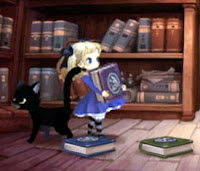 Odin Sphere employs a narrative framing device that sets all the action within a series of books being read by little girl in the attic of her home. The story of each of the main characters---Gwendolyn, Cornelius, Mercedes, Oswald, and Velvet---plays out in a separate book, but each story intertwines with all the others to produce the main narrative of Odin Sphere. A character who has tragically died in one book might appear again in another as the events of each book unfold before, during, and after the events of the others.
Odin Sphere employs a narrative framing device that sets all the action within a series of books being read by little girl in the attic of her home. The story of each of the main characters---Gwendolyn, Cornelius, Mercedes, Oswald, and Velvet---plays out in a separate book, but each story intertwines with all the others to produce the main narrative of Odin Sphere. A character who has tragically died in one book might appear again in another as the events of each book unfold before, during, and after the events of the others.The sprites and animation are very beautiful and detailed. I think almost everyone knows by now that this is a two-dimensional, side-scrolling beat-em-up/RPG hybrid, but there's a twist. Each stage is a ring, so if you scroll in one direction long enough you'll eventually scroll back around to the starting point. Several of these rings are strung together in a non-linear group to form a level. Clearing the final boss stage clears the level, so you can proceed by a direct path to the boss or you can meander through all of the different stages to max out on experience for your weapon and your hit-point gauge.
The alchemy/gardening system adds several layers of depth and strategy. You can grow fruit and even animals from seeds and eat the proceeds to restore hit points and gain experience toward leveling them up. Later in the game, you can carry food items from the battlefield to the "Pooka village" restaurant to create gourmet dishes that will rapidly upgrade your hit points (if you can stomach the Pooka proprietess' terrible voice acting). You can also combine nearly any item in the game with a "Material" to create potions for healing or buffing yourself, potions to damage or debuff enemies, and other miscellaneous potions (for instance, Juggler magically transforms all of the items on the ground into different items at random---great for potentially turning your inventory trash into treasure).
The only other drawback (that is, other than the few instances of over-the-top acting in an otherwise excellent vocal track) is a ridiculous slowdown in the framerate in a few places. So far I've only noticed this on major boss stages that have a lot of action going on, but when this slowdown happens it's incredibly annoying. I'm thinking of playing through the first book again on my PS2 to determine if the slowdown is endemic or if it's a product of playing a PS2 game on a system it wasn't designed for (the PS3). Additionally, the PS3 occasionally reads the save data as corrupted, but the data is actually fine. Exiting to the XMB and then re-loading the game turns up a perfectly fine save.
Atlus USA is known for pressing limited quantities of their games, so if you plan to get this game (and I highly recommend that you do, if you like this sort of game), get it now before it goes all Valkyrie Profile. (Or "all MvC2," as Killa would say.)

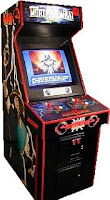
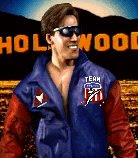 This guy random-selected his character every time and murdered us with every character. Even
This guy random-selected his character every time and murdered us with every character. Even 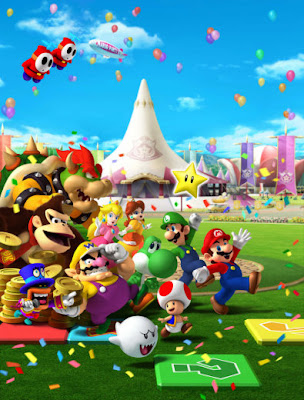
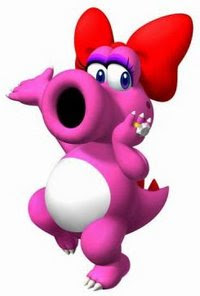



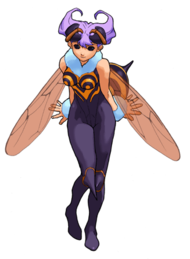
 The Notorious
The Notorious
 Sephiroth says it best when he explains: "The Jenova Project wanted to produce people with the powers of the Ancients . . . no, the Cetra. . . . I am the one that was produced." An itinerant alien creature found sealed in a "2000 year old geological stratum," apparently dead: Jenova. A psychotic scientific experiment injects Jenova's cells into the unborn child Sephiroth. Is Jenova his mother? Sephiroth seems to think so, noting that "With her superior power, knowledge, and magic, Mother was destined to become the ruler of the Planet." But Sephiroth isn't alone. Without realizing it, the cast of Final Fantasy VII and many of the various people and creatures that they meet are being drawn to the Knowlespole (i.e., the Northern Crater), for Jenova's Reunion. Although they believe they are willfully hunting down Sephiroth, the truth is that the alien Jenova cells within Cloud---as well as those within the many black-cloaked figures they encounter---are being inexorably drawn toward Sephiroth's body---the largest concentration of Jenova cells---to reform the creature Jenova.
Sephiroth says it best when he explains: "The Jenova Project wanted to produce people with the powers of the Ancients . . . no, the Cetra. . . . I am the one that was produced." An itinerant alien creature found sealed in a "2000 year old geological stratum," apparently dead: Jenova. A psychotic scientific experiment injects Jenova's cells into the unborn child Sephiroth. Is Jenova his mother? Sephiroth seems to think so, noting that "With her superior power, knowledge, and magic, Mother was destined to become the ruler of the Planet." But Sephiroth isn't alone. Without realizing it, the cast of Final Fantasy VII and many of the various people and creatures that they meet are being drawn to the Knowlespole (i.e., the Northern Crater), for Jenova's Reunion. Although they believe they are willfully hunting down Sephiroth, the truth is that the alien Jenova cells within Cloud---as well as those within the many black-cloaked figures they encounter---are being inexorably drawn toward Sephiroth's body---the largest concentration of Jenova cells---to reform the creature Jenova. Throughout the game, whenever the player's party fights Sephiroth, Jenova appears to battle immediately afterward. Later on, as the plot unfolds, it becomes apparent that Sephiroth has been ensconced in the Lifestream, frozen deep within the Northern Crater, the whole time. What you've been fighting are pieces of Jenova under Sephiroth's control impersonating Sephiroth (as Sephiroth says, "The ability to change one's looks, voice, and words, is the power of Jenova"). The fascinating aspect of this Madonna-and-child dynamic is their reciprocal symbiosis: Jenova's cells exist and act from within her son and host, Sephiroth; meanwhile, Sephiroth---frozen and incapacitated beneath the Knowlespole---can only exert his influence in the world by controlling the Jenova cells in others. Although Sephiroth emerges as the primary antagonist of Final Fantasy VII, all of his actions are designed to promote Jenova's agenda: to effect the "Reunion" that will allow her cells to reform, and then to take back the planet in her name.
Throughout the game, whenever the player's party fights Sephiroth, Jenova appears to battle immediately afterward. Later on, as the plot unfolds, it becomes apparent that Sephiroth has been ensconced in the Lifestream, frozen deep within the Northern Crater, the whole time. What you've been fighting are pieces of Jenova under Sephiroth's control impersonating Sephiroth (as Sephiroth says, "The ability to change one's looks, voice, and words, is the power of Jenova"). The fascinating aspect of this Madonna-and-child dynamic is their reciprocal symbiosis: Jenova's cells exist and act from within her son and host, Sephiroth; meanwhile, Sephiroth---frozen and incapacitated beneath the Knowlespole---can only exert his influence in the world by controlling the Jenova cells in others. Although Sephiroth emerges as the primary antagonist of Final Fantasy VII, all of his actions are designed to promote Jenova's agenda: to effect the "Reunion" that will allow her cells to reform, and then to take back the planet in her name. 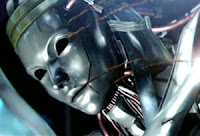 In Final Fantasy VII: Advent Children, the characters Kadaj, Yazoo, and Loz are introduced as children of Jenova, striving to complete the Jenova Reunion that was foiled during the events Final Fantasy VII. In Advent Children, the trio places a special emphasis upon Jenova as the "mother" of any creature that is infected with her cells (including all of the children experiencing the Geostigma illness). Kadaj and company, oddly enough, don't carry any Jenova cells within themselves, which is why they are so desparate to find the missing head of Jenova (remember that Sephiroth carried it off during the Nibelheim event in FFVII) so that they can infect themselves with her cells and join in the Reunion.
In Final Fantasy VII: Advent Children, the characters Kadaj, Yazoo, and Loz are introduced as children of Jenova, striving to complete the Jenova Reunion that was foiled during the events Final Fantasy VII. In Advent Children, the trio places a special emphasis upon Jenova as the "mother" of any creature that is infected with her cells (including all of the children experiencing the Geostigma illness). Kadaj and company, oddly enough, don't carry any Jenova cells within themselves, which is why they are so desparate to find the missing head of Jenova (remember that Sephiroth carried it off during the Nibelheim event in FFVII) so that they can infect themselves with her cells and join in the Reunion. 

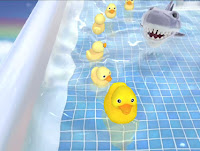
 Reaper of Souls
Reaper of Souls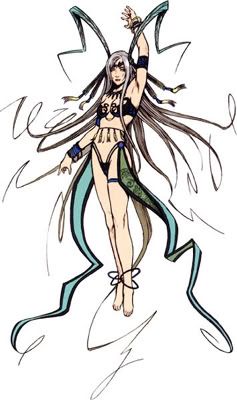
 Anyway, the 983 MB download is finally complete and I had a chance to play through the demo yesterday. I was pleased with how responsive the controls are. Ryu handles like the Prince (of Persia, that is), although Rachel, once you get her unlocked, handles more like a Mack truck. Mission mode (featuring Rachel) and hard mode were both unlocked by beating the demo once, which took me a couple of tries. The demo includes a robust set of weapons for Ryu (the quintessential dragon sword; nunchaku; a larger, heavier sword; a staff; and dual-wielded katanas) that you can use from the start to vary the gameplay. I am particularly enamored with the Lunar, a large bo staff useful for mowing down multiple enemies at a time. The entire first chapter seems to have been included and took me approximately 20 minutes to run through on my winning attempt.
Anyway, the 983 MB download is finally complete and I had a chance to play through the demo yesterday. I was pleased with how responsive the controls are. Ryu handles like the Prince (of Persia, that is), although Rachel, once you get her unlocked, handles more like a Mack truck. Mission mode (featuring Rachel) and hard mode were both unlocked by beating the demo once, which took me a couple of tries. The demo includes a robust set of weapons for Ryu (the quintessential dragon sword; nunchaku; a larger, heavier sword; a staff; and dual-wielded katanas) that you can use from the start to vary the gameplay. I am particularly enamored with the Lunar, a large bo staff useful for mowing down multiple enemies at a time. The entire first chapter seems to have been included and took me approximately 20 minutes to run through on my winning attempt.